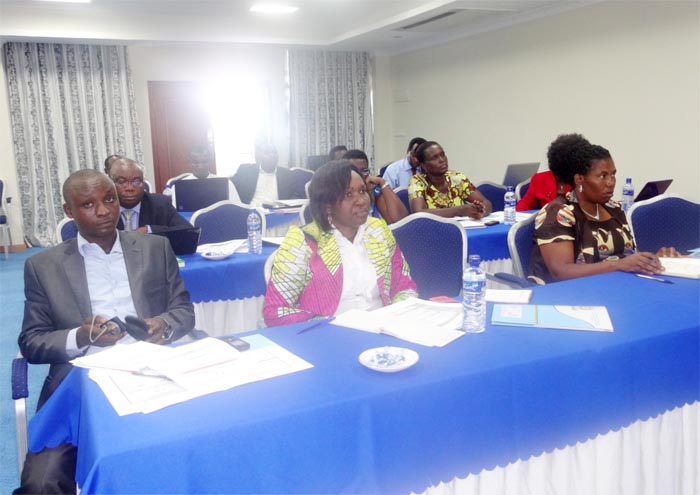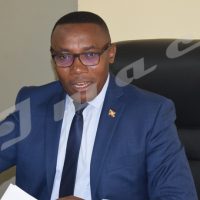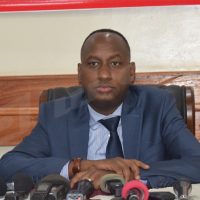Stakeholders from the public, civil society, media institutions in Burundi established National Interim Population, Health and Environment (PHE) Network on 11th April 2014.-By Diane Uwimana
Twelve members drawn from different institutions (public and civil society) constitute the Interim PHE Network and will be coordinated by the Ministry of Environment, Water, Land Management and Urban Planning. The meeting aims at sharing experiences, achievements, and lessons learnt in the EAC region.
Some of the PHE activities include identifying governmental and non-governmental organizations to implement PHE, conducting Executive Secretaries of PHE Networks, stakeholders mapping develop PHE minimum package among others. Civil Society will contribute towards effective implementation of PHE activities through sensitization of different actors at community levels whereas academia will integrate PHE in academic curricula and induct University Senate on PHE.
Dr. Doreen Othero, the Regional PHE Coordinator tells delegates that PHE is a unique and integrated approach to sustainable development, whose impact should be felt both at policy technical and community levels. PHE Regional Coordinator adds that the PHE funding organization such USAID East Africa and the coordinating institution—Lake Victoria Basin Commission (LVBC) through the Program, many sectors, Ministries, Civil Society, Private Sector and other actors in Population, Health and Environment sectors “must plan, implement and realize results together in an integrated and cost-effective manner.”
Othero emphasizes “as a cross-cutting program, PHE is driven by principles such as coordinating institution, strategic plan and monitoring and evaluation framework.” She urged participants to come up with multi-actor framework to guide National PHE processes by building on the existing resources: frameworks and initiatives ranging from national, provincial up to community levels and hills where citizens are based.
“EAC is a potentially powerful entity, demographically and economically”
Opening the Workshop, Representative of the Minister in Charge of EAC affairs, Clarette Inamahoro lauded the active participation, pointing out that it is “a clear testimony for your unwavering support to the East African Community integration agenda in general, and PHE in particular.” Citing 135 million people, and geographical coverage of about 1.82 million square kilometers, she said EAC is a ‘potentially powerful entity,’ demographically and economically. However, she adds this potential can only sustainably be utilized if East African people are well guided in sustainable management of the environment and responding to health concerns generally caused or exacerbated by limited or lack of information. “In the area of health for example, nobody ignores how pandemic diseases such as HIV/ AIDS, tuberculosis, malaria, and cholera among others are harmful to our people due to their ignorance on one hand, and to the way they destroy the environment around them on the other hand,” he points out. Inamahoro also commends the PHE progress after the 12th EAC Sectoral Council focused on Lake Victoria Basin held in Mwanza Tanzania in October 2013.
Some of achievements she cited were such as adoption the PHE Terms of Reference of PHE, the formation of the Technical Regional Working Group, the Policy Steering Committee and thereafter the establishment of National PHE Networks in the 5 EAC Member States. Media is considered as a key player in facilitating the process of implementing the activities of Burundi PHE interim Network. Delegates underscore the role of the media in catalyzing attitude, behavioral change and promote discourse focused on demographic threats, health, and environment between end-users, service providers and Members of PHE Networks. “Media has a social responsibility of promoting the well-being of the population. We will conduct consistent coverage of PHE activities so that the end-users [citizens] get timely and accurate information on health and environment,” notes Dorotheé Nahayo, a journalist at RTNB.




















 IWACU Open Data
IWACU Open Data

